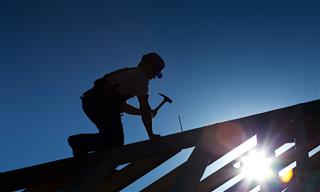Judge affirms, vacates in part fall-protection citation against commercial roofer
- July 5, 2025
- Posted by: Web workers
- Category: Workers Comp

An administrative law judge with the Occupational Safety and Health Review Commission on Wednesday affirmed two violations and vacated one filed against a Rochester, New York, commercial roofing company over the lack of fall protection for workers on a four-story roof.
A compliance safety and health officer for the U.S. Occupational Safety and Health Administration was driving near a municipal building in Newark, New York, when he noticed a worker for Elmer W. Davis Inc. standing on the roof of a four-story building without any apparent fall protection, signaling to the operator of a crane that was hoisting materials onto the roof, according to Secretary of Labor v. Elmer W. Davis Inc.
OSHA issued a citation alleging three “serious” violations of OSHA’s construction industry standards for fall protection: that an employee who had been signaling the crane operator violated the standard that prescribes permissible forms of fall protection for employees in hoist areas; that three employees on the bulkhead roof violated the standard that prescribes permissible means of fall protection for employees engaged in roofing work on low-slope roofs; and that employees had used the portable ladder to access the bulkhead roof in violation of the standard requiring that the side rails of such ladders extend at least three feet above the upper landing surface. OSHA proposed penalties totaling $26,106 for the three alleged violations.
As part of its defense, the roofing company had argued employee misconduct had contributed to the alleged violations and that OSHA had violated the company’s constitutional protection against unreasonable searches and seizures — both of which the judge dismissed.
The judge affirmed two parts of the citation and dismissed that which addressed the three employees, ruling that the “evidence is insufficient.” The company was ordered to pay $16,782.



